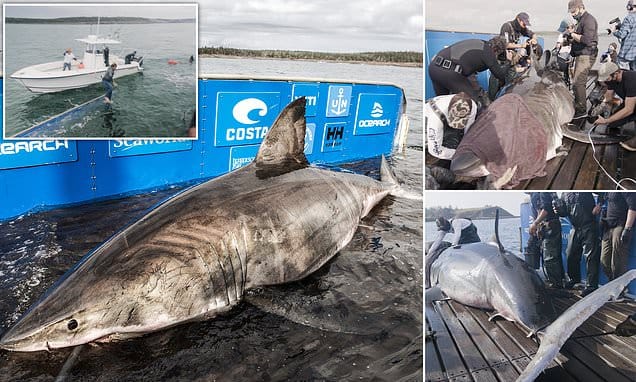Ocean research device victim of great white shark attack off Nova Scotia shore
Clark Richards, a research scientist with the federal department, says his colleagues are confident the bite marks on an ocean glider used to track ocean data are from a great white — a species known for their sharp, serrated teeth.

A device used by Fisheries and Oceans Canada researchers appears to have been attacked by a great white shark.
Clark Richards, a research scientist with the department, says his team believes the bite marks on an ocean glider used for tracking ocean data are likely from a great white, known for their sharp, serrated teeth.
Fisheries and Oceans Canada deploys autonomous ocean gliders to collect data on salinity, temperature, and small particles in seawater. On September 22, around 9 a.m., one of the five gliders in the program, positioned about 300 metres below the ocean surface, experienced a sudden malfunction.
Richards explains that the shark bit into the two-metre-long glider, damaging its body and removing two of its wings. However, the glider “miraculously” continued to function, resurfacing where researchers were able to recover it.
He adds that it seems the glider was attacked a second time before reaching the surface.
“The shark likely struck it deep underwater, thought it had injured it, waited for it to float up, and then probably took another shot at it,” Richards says.





